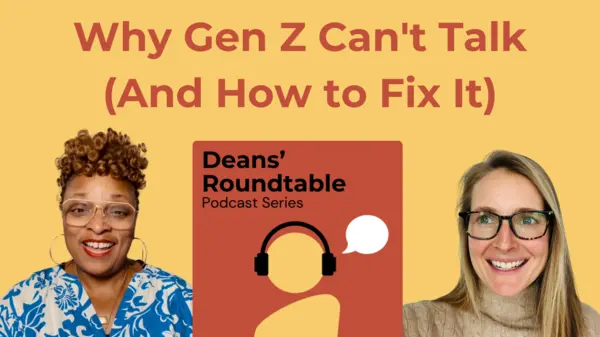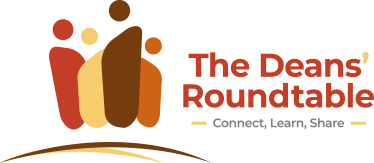Teaching Discussion Skills Transforms Modern Education
In an age of increasing digital distraction, teaching discussion skills has never been more crucial. As students grow up in a world where texting is preferred over talking, educators face a critical challenge: how do we create spaces for authentic dialogue that builds genuine connection?
On the latest Dean’s Roundtable podcast, Liza Garonzik shares powerful insights about fostering meaningful conversations in schools. As founder of R.E.A.L. Discussion and partner to over 70 independent schools, she’s discovered how structured discussions can transform classroom dynamics.

The Discussion Crisis in Modern Education
“We’re living in this moment where everything feels so identitarian and high stakes,” Garonzik explains. The statistics are striking – fewer than 20% of students believe their peers are actually listening when they speak.
Students face three main challenges in classroom discussions:
Uncertainty about getting their voice heard
Doubt about whether their contributions are “good enough”
Confusion about taking notes during discussions
These aren’t just academic challenges. They reflect deeper issues of confidence and belonging in learning spaces.
Teaching Discussion Skills Through Structure
Garonzik’s Real Discussions framework makes conversation skills teachable through four core components:
Relating: Building connections between ideas and people
Excerpting: Using evidence effectively
Asking: Developing precise questioning abilities
Listening: Practicing active attention and comprehension
How Skills Progress
The framework adapts as students develop:
Elementary: Students learn discrete discussion skills
Middle School: Students practice making real-time decisions about how to contribute
High School: Students understand discussion as a team sport
Like teaching typing skills in the 1990s computer lab, Garonzik advocates for dedicated “conversation labs” where students develop these essential capabilities.
Building Psychological Safety
Creating safe discussion spaces requires:
Consistent, predictable routines
Clear discussion formats
Structured ways for all voices to be heard
Specific note-taking strategies
Regular trust-building practice
One effective technique: students hold up fingers to show how many times they’ve spoken, ensuring balanced participation without pressuring quieter voices.
Measuring Real Impact
Schools using structured discussion training see improvements in:
Student confidence expressing disagreement
Peer listening and engagement
Skills transfer to other contexts
Overall sense of belonging
These skills extend far beyond the classroom. Students report using them everywhere – from ordering at restaurants to handling family conflicts.
As one ninth-grader put it: “With Real [Discussions], I learned it was possible to disagree with each other’s ideas, not whole entire identities.”
Beyond Academics: Life Skills
While discussion skills boost academic performance, their impact reaches much further. “Conversation is how the most meaningful parts of human existence happen,” Garonzik notes. It’s how we:
Build friendships
Fall in love
Explore faith
Lead others
As Simone de Beauvoir reminds us, “attention is the purest form of generosity.” Teaching discussion skills equips students with tools for meaningful human connection.
Looking to the Future
As AI reshapes our world, human conversation skills become increasingly valuable. The ability to engage in authentic dialogue will set students apart.
The Vision: Conversation Labs
Garonzik sees schools developing dedicated spaces for teaching human interaction – much like the computer labs of the past. This structured approach could help address:
Rising social isolation
Digital dependence
Future workplace demands
Community building needs
Ready to Transform Your School’s Discussions?
Discover more insights about teaching discussion skills and fostering authentic dialogue in schools. Listen to the full conversation with Liza Garonzik on the Dean’s Roundtable podcast.
Listen to the Full Episode: Transforming School Discussions with Liza Garonzik
Bridget Johnson
Want more support as a student life professional?
Look no further than the Deans' Roundtable Community
- Network with a vast directory of student life professionals like yourself
- Gain a multitude of professional development opportunities to be the best version of yourself
- Gather expert advice on the important questions you need answered

